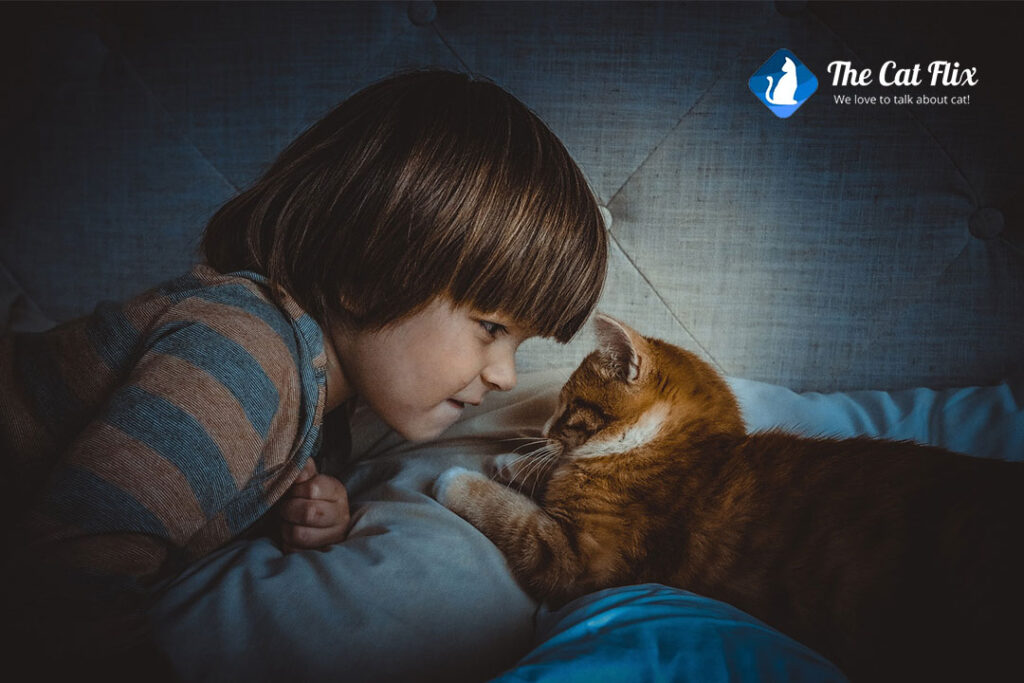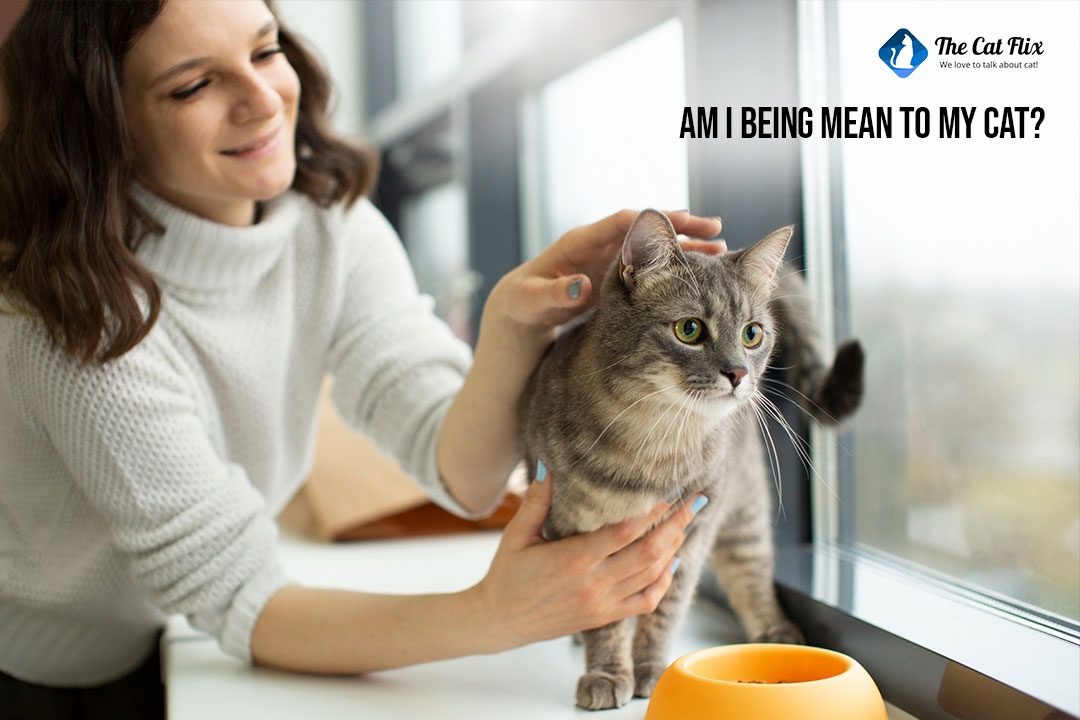Our emotions are like a kaleidoscope of colors that change as we gain new experiences. It can sometimes be as beautiful as a sunny summer day and, on other occasions, as dark as a stormy night. Many people have feelings that are easy to understand and some that are difficult to perceive. Our pets’ emotions are the most perplexing because, unlike us, they are unable to express themselves in human words.
Our main goal as cat owners is to give our cats the best, safest, and most beautiful life possible. We want them to think of us as a safe haven, a source of comfort and peace. However, numerous times we unknowingly hurt our beloved pets with our actions or words, which is extremely harmful. This results in a painful look in their eyes, changes in their behavior, and a heartbreaking tendency to avoid us. The good news is that it is never too late to form an unbreakable and sweet bond with this little ball of fur.
In this blog post, we will embark on a journey together to learn about the signs of mistreatment and the importance of self-reflection. We will also look into ways to strengthen our bond with cats by providing them with the love and care they deserve. Together, we will create an adorable and snuggly home for our feline family that will be purr-fect.
How to know if you’re being mean to your cat
We all want our cats to see us as the heroes of their story. We want them to think of us as a source of love and comfort when they come to us. We must always be someone they can count on for their overall well-being. So, if our cat is suffering for whatever reason, we feel bad, but if that suffering is caused by us, our hearts ache a lot. It’s like watching a movie in which the hero we’re rooting for is constantly tortured, and we have no way of stopping it.
Determining whether you are being mean to your cat is like solving a complicated puzzle. Finding this solution requires you to burn a lot of lumber, such as by paying attention to your behavior toward the cat, reflecting on your actions, and being aware of where things are going wrong. It’s important to remember that cats are very sensitive animals, and they don’t even have the ability to clearly explain to us what kind of situation they’re in on a daily basis. So, just to be clear, we’re here to discuss how to tell if you’re being mean to your cat.
- Consider your actions: Take some time to think about how you interact with your cat. It is essential to ensure that you are providing them with adequate food, drink, and shelter, as well as treating them with respect. It’s also important to respect their boundaries and give them space when they need it.
- Analyze your cat’s reactions: Now is the time to observe your cat’s behavior and body language. Is their demeanor happy and relaxed when they’re with you? Or are they attempting to avoid your company? If you notice such behavior in your cats, you can be certain that you are being mean to them.
- Speak with a professional: If you can’t figure out if your cats are getting worse despite taking various measures, and their discomfort toward you isn’t going away, it’s time to take them to a vet or an animal behaviorist. They can provide expert advice as well as identify and resolve any underlying issues.
- Consider it a learning experience: If you realize you are being mean to your cats, perceive this as an opportunity to better yourself and learn something new. Remember that we all make mistakes as humans, and sometimes we don’t realize that some of our actions can harm or hurt someone else. The most important thing is to admit being wrong, apologize to your cats, and correct the behavior.
Cats are not only our pets but also a part of our family who bring joy, love, and comfort to our lives. While we want to give them the best life possible, we can sometimes be mean to cats, But don’t let that get you down, instead, see this as an opportunity and do your best to establish yourself as the hero of your feline companion’s life.
Mistreatment symptoms in your cats
Identifying signs of mistreatment in our cats can be a heartbreaking experience. As cat owners, we only want to provide them with a loving and peaceful environment. Despite our best efforts, we often act mean towards them, causing our furry pals to suffer and our relationship to deteriorate.
We often miss signs of mistreatment in cats because they are subtle and easily overlooked. However, it is our responsibility to recognize these signs so that our cats can live a healthy and wholesome life. Pay attention to the points we’ll go over now to see if you’re being mean to your cat.
- Changes in behavior: If your cat suddenly becomes withdrawn, aggressive, or anxious, it could be a sign that they are experiencing stress or fear. This could be the result of physical or emotional abuse, neglect, or a lack of proper care.
- Physical characteristics: Many cats exhibit visible signs of neglect or meanness, such as dull coats, matted fur, and other symptoms of illness or disease. As a result, they are naturally underweight and have a prominent potbelly, which is the underlying cause of severe malnutrition.
- Lack of basic needs: Mistreatment in cats can be identified by an irregular supply of inadequate food, water, and shelter. Regular pampering, veterinary care, and socialization are absolutely essential to cats’ physical and mental development.
- Litter box problems: A clean and tidy defecation area is vital not only for humans but also for cats. Because if the litter box is not properly maintained, they will urinate and defecate in odd places, creating an unhealthy environment for both the cats and their owner, as well as harming the cats’ mental health.
- Fear of people: If a domesticated cat feels uncomfortable or afraid of human contact, especially from its owner, it ought to be presumed that the cat is a victim of mistreatment or meanness.
When cats are scared of anything, they will hide in various locations to feel safe. Sometimes they remain hidden for so long that we become concerned. So, where do they go and how long do they stay hidden? How do we get them out of their hiding spot? In our article on how long a scared cat will hide, we answer all of your questions.
We must not forget that the presence of these symptoms may be caused by factors other than those listed above. These symptoms can appear for a variety of reasons, including health issues, environmental changes, or household changes. If you notice such symptoms, you should consult a veterinarian or animal behaviorist. Our primary goal is to identify the underlying cause of our feline friends’ problems and make their lives better by resolving them.
How to mend your troubled relationship with your cats

Now you may be wondering how to revive this dying relationship with your cats! There is no need to be concerned; we are here to the rescue. Every cat is unique, with their own personalities and claws, just like people, so it will take a lot of patience, understanding, and love to get your affiliation with your cat back on track.
So, whether you were deliberately or unintentionally mean to cats, you should make every effort to repair the bond. Here are some ideas to help you mend your broken relationship with your furry friends.
- Learn about your cat: Spend enough time with your cats to observe their behavior and learn about their preferences. Observe their body language and what they are attempting to convey or indicate with their traditional meows.
- Speak to them in their language: Cats interact with you via body language, voice, or scent. Make a clear impression of the meaning of all of these rules of conduct and try to communicate with them accordingly.
- Show them you care: Cats are very cuddly creatures; when they are loved, they soften and crave affection. It is highly recommended that you show them care and attention in order to form an unbreakable bond with them. They will try to be yours if you show them compassion by dressing, grooming, or playing with them.
- Create a stimulating environment for them: Cats require mental and physical stimulation on a regular basis to have a fulfilling life. Keep them enthralled by providing a variety of toys, scratching posts, and climbing structures. Spend time playing and interacting with them if necessary.
- Make it one-of-a-kind: Every cat is unique in its own way, so make your relationship one-of-a-kind as well. Be creative, think of games that are enjoyable for both of you, and because many cats prefer to be petted in a specific way, pet them in that manner.
It will take time to heal your relationship with your cats, and you must be patient along the way. Following the tips listed above will give you and your cats a new sense of self that will allow you two to get back on the same page.
To Sum Up
Let us try to stop being cruel to our cats and resolve to be better caregivers for them. Emphasize being the hero of their fairy tale or the safe haven they long for. Take advantage of this golden opportunity to provide comfort for their well-deserved affection. Let’s work together to create a happy and healthy home for your cats.
If a picture is worth a thousand words, I suppose, then a video should be worth millions. To help you, we have also provided a visual solution to your question, “Am I Being Mean to My Cat?” because it is all about the overall well-being of cats.
Why don’t you leave a comment to let us know how your relationship with your cats has improved and how much our post has helped you along the way? Don’t forget to share it with other cat owners as well.

